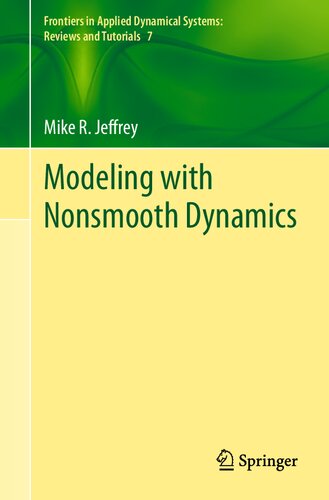

Most ebook files are in PDF format, so you can easily read them using various software such as Foxit Reader or directly on the Google Chrome browser.
Some ebook files are released by publishers in other formats such as .awz, .mobi, .epub, .fb2, etc. You may need to install specific software to read these formats on mobile/PC, such as Calibre.
Please read the tutorial at this link: https://ebookbell.com/faq
We offer FREE conversion to the popular formats you request; however, this may take some time. Therefore, right after payment, please email us, and we will try to provide the service as quickly as possible.
For some exceptional file formats or broken links (if any), please refrain from opening any disputes. Instead, email us first, and we will try to assist within a maximum of 6 hours.
EbookBell Team

0.0
0 reviewsThis volume looks at the study of dynamical systems with discontinuities. Discontinuities arise when systems are subject to switches, decisions, or other abrupt changes in their underlying properties that require a ‘non-smooth’ definition. A review of current ideas and introduction to key methods is given, with a view to opening discussion of a major open problem in our fundamental understanding of what nonsmooth models are.
What does a nonsmooth model represent: an approximation, a toy model, a sophisticated qualitative capturing of empirical law, or a mere abstraction? Tackling this question means confronting rarely discussed indeterminacies and ambiguities in how we define, simulate, and solve nonsmooth models. The author illustrates these with simple examples based on genetic regulation and investment games, and proposes precise mathematical tools to tackle them.
The volume is aimed at students and researchers who have some experience of dynamical systems, whether as a modelling tool or studying theoretically. Pointing to a range of theoretical and applied literature, the author introduces the key ideas needed to tackle nonsmooth models, but also shows the gaps in understanding that all researchers should be bearing in mind.
Mike Jeffrey is a researcher and lecturer at the University of Bristol with a background in mathematical physics, specializing in dynamics, singularities, and asymptotics.